The Thief of Baghdad (1978)
Directed by: Clive Donner
Written by: A.J.Carothers, Andrew Birkin
Starring: Frank Finlay, Kabir Bedi, Marina Vlady, Roddy McDowall
HCF REWIND NO. 248: THE THIEF OF BAGHDAD [UK/France 1978]
AVAILABLE ON DVD [public domain]
RUNNING TIME: 102 min
REVIEWED BY:Dr Lenera, Official HCF Critic
When his father and mother die from a strange illness, Prince Taj is in line to become Caliph of Kandar, but his evil Vizier Jaudur wants the position, and sends men to kill him when Taj is en route to Bagdad as one of the suitors to Princess Yasmine, whom her father the Caliph is keen to give away but hasn’t yet found someone suitable. Taj survives and makes his way to Baghdad, where he steals some food and is saved by Hasan, a street magician and thief. With Hasan’s help, he still manages to present himself as one of the suitors, but Jaudur is also there, and says that Taj is not the Prince but a fake….
This is often named as the fourth version of The Thief Of Bagdad, though said claim isn’t strictly true, as there were also versions made in France and India. They really do seem impossible to see though, so I’ll call this the fourth version too. Like the 1961 version, it hasn’t had an official DVD release, and currently resides in the public domain where it can be found in versions of rather poor quality. It’s generally regarded as the poorest of the versions, and its existence does seem pretty pointless. The 1924 and 1940 versions are classics, and the 1961 version, while not really a classic, is still tremendous fun in its own right. This 1978 re-telling is definitely not a bad film, and if it’s the first version of this story you see, it should entertain you. There are some who grew up with it and claim it as their favourite, but it’s the weakest no doubt. Despite having a strong cast, there’s a certain lack of conviction and tiredness about some of the proceedings, a sense of going through the motions, though some scenes and elements do show real spark and imagination, as if there were two sets of directors, scriptwriters etc. A bigger budget would really have helped with this one, because the special effects are just not up to the job in certain bits and prevent the scenes they’re in from being realised to any great effect. It’s solid escapist fare though, in tone probably closest to the 1961 version with slightly less humour.
A British/French collaboration, though mostly made in England with location shooting in Spain, it was actually made as a TV movie, though one good thing you can say about this movie is that it doesn’t really look like a TV movie – yes, it’s detrimentally cheap for some of the time, but it does look fairly cinematic, Clive Donner being a decent director of mostly big screen films. The script is credited to A.J.Carothers and Andrew Birkin, the latter adapting the former’s work, though it should really credit the writers of the previous versions, especially as it doesn’t credit the novel either. They really did get together a strong cast for this one including Roddy McDowall, Peter Ustinov, Terence Stamp [who replaced Curt Jurgens as the villain], Frank Finlay and a young [ish] Ian Holm. Kabir Bedi, playing the Prince, has just played the role in the 1977 Indian version. The film, while still making its way directly to TV in the US, actually got a cinema release in the UK and some other countries. I distinctly remember almost going to see it but opting for something else instead [I can’t recall what it was]. It may have been because, already being an avid film lover and especially of fantasy movies, it wasn’t the 1940 version, a film which so many books had raved about and sounded brilliant to the point where I didn’t especially want to see a pale copy. In any case, it soon turned up on TV.
Now this requires a bit of going into. So you have the 1924 film, then you have the 1940 film, which changes quite a lot, most notably splitting the thief hero into two characters: a king who has to get his kingdom back and a thief who is now a boy. The 1961 film ignores the 1940 version except for the odd detail, and goes back to the 1924 one for inspiration, with its sole hero and greater number of challenges for him to undertake. This 1978 effort takes parts from all three earlier versions, mainly the 1940 one but some material from the 1924 and a few bits from the 1961, like some magic which turns men into stone. Like the 1940 we have two heroes, though the prince is not yet a king, though he’s still deposed by the villain, and the thief is not a boy but an adult. The prince is far more of an action man than 1940’s, while the thief, in a nice new touch, is actually a bit of a coward for much of the time, one of Roddy McDowall’s best scenes occurring when Taj is trying to fight off an assassin and Hasan deciding that the best way to aid his ‘friend’ is to pretend that a load of soldiers are about to come in. Many of the details, such as a flying carpet and a genie in a bottle [rather than 1961’s odd one], come from 1940, though as in the 1924 and 1961 there are several suitors going on a quest to find the world’s greatest treasure.
This all sounds like a bit of a hodgepodge, and it certainly seemed like one to me having recently seen the other versions, but the story still flows reasonably well, well enough to almost make up for this version being the least visually pleasing. The sets are cramped [though it’s the only thing that really reminds that this is a TV production] and the brightly lit backdrops, while initially interesting, become tiresome. How many times do we need to see lots of pink outside in the distance? As it goes through a tweaked rehash of 1940’s events, this version, even if the questing as, as usual, relegated to the second half, does have the most action in its first half, with several chases, escapes and an actual sword duel between Hasan and Jaudar, a duel which is quite good too. This means that, though we get the same love-at-first-sight stuff, the romance really is handled fairly briefly. We do get to see Hasan have a dalliance with a harem girl as well, as well as spend a bit of time in the Oasis Of Unquencable Delights, in a film which has slightly [though only slightly – it’s still a ‘U’ certificate film] more sexual references. Eventually we get on to the quest, and the two get to ride around on a flying carpet quite a lot and have to go inside a mountain where, in a rather eerie sequence with lots of fog and blue lighting, voices taunt them and illusions appear. Taj even gets turned to stone and Hasan needs to finally find his courage to save him. Far more than previous versions, things do seem to be shaping up to becoming a great battle between good and evil, but then things start to get really rushed and the climax is virtually thrown away, as if they ran out of money.
While the effects are often rather good – the flying carpet’s wires are only sometimes visible and the genie is rather uncanny with not only the intimidating way Daniel Emilfork moves his arms about but also the way only his top half is formed – the ambition of the filmmakers was sometimes too high. The action highlight is around two third of the way through where Jaudur and a group of henchmen, all on horses which fly [the way they first take off is actually a bit of a surprise] though without wings, attack the heroes on their flying carpet. The choice of shots, editing and lighting do their best, but the scene is just not well realised, it mostly just looks fake, though it does end in a really cool way with Taj and Hasan both hanging on for dear life from small bits of the carpet. Later on, they go to obtain Jaudar’s soul, and find it in a bird’s nest [!]. They are attacked by some sort of bird but it’s all blurry and badly superimposed where an actual model, even if it didn’t look too realistic, would have been better. Throughout this film there is the sense that it’s being held back from being as good as it ought to be, but even considering the poor quality of my DVD [something they all seem to share], I was still partially swept away. I think there’s an innocence and a sense of wonder to old fantasy movies like this that recent equivalents often don’t have. The last time they did an Arabian Nights one was Prince Of Persia, and that sure didn’t turn out too good.
Stamp is basically playing General Zod here, and he plays the cold, emotionless, evil baddie so well. Bedi is likeable if a bit restrained, though he and McDowall [whose tiny fake beard keeps moving] are a good team. Ustinov is the same as he usually was at this stage in his career though he’s enjoying himself. The acting by the two lead female cast members is rather poor. John Cameron’s score is quite diverse though its themes are forgettable and the small orchestra just seems too limited to do the music justice. Often typical 70’s style synthesisers and sound effects are heard, adding to the feeling that this version of The Thief Of Bagdad has in some ways dated more than the others. Considering that it didn’t need to be made though, they didn’t do a bad job and it’s certainly a most pleasant watch that is mostly well done until near the end. It seems that you can’t really go very wrong with this story, which, as I mentioned in my review for the 1924 original, also inspired Disney’s Aladdin. Is there room for another version? There could be.

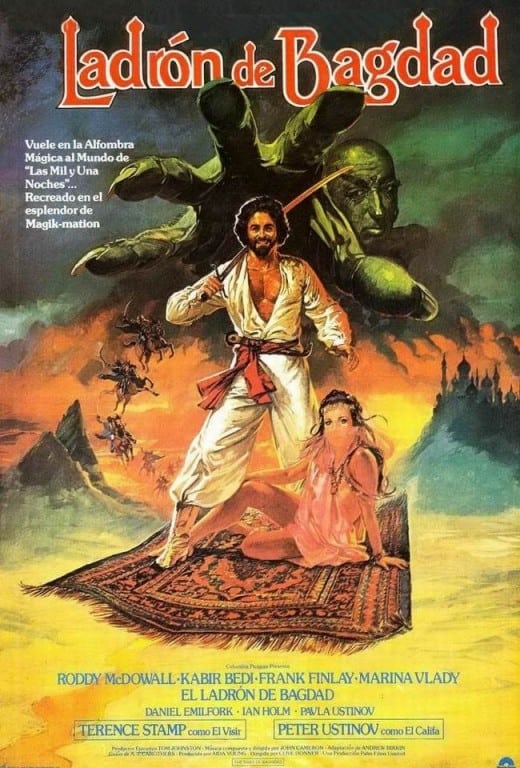

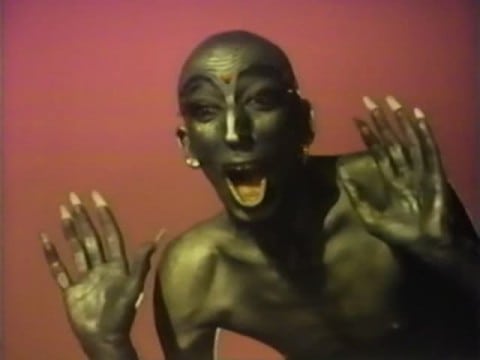




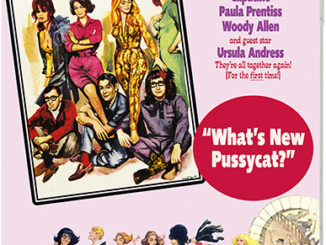
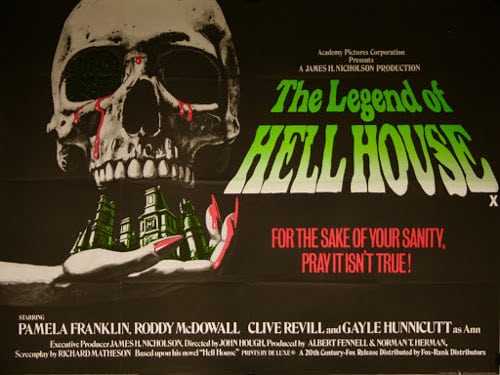
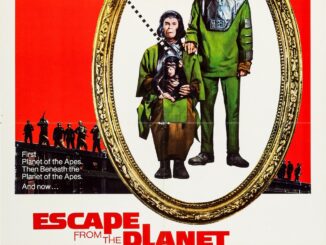
Be the first to comment